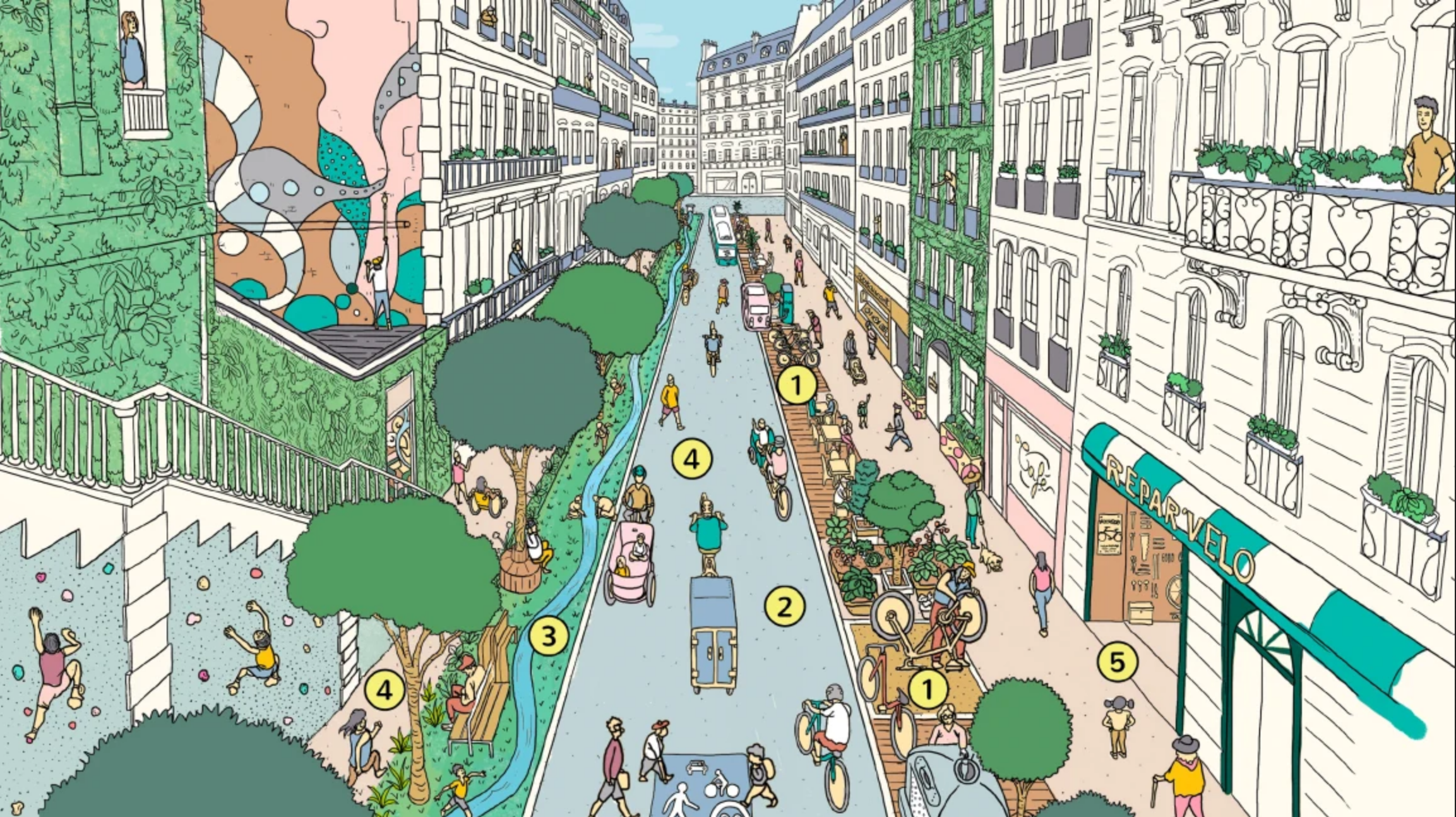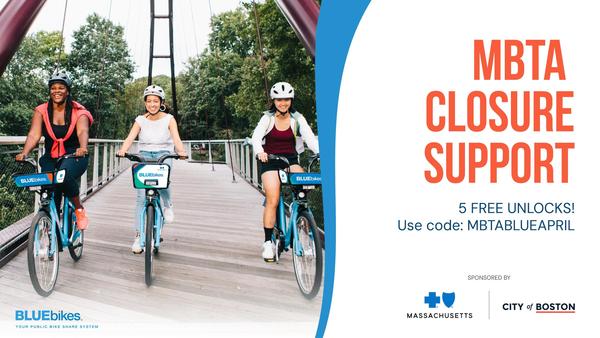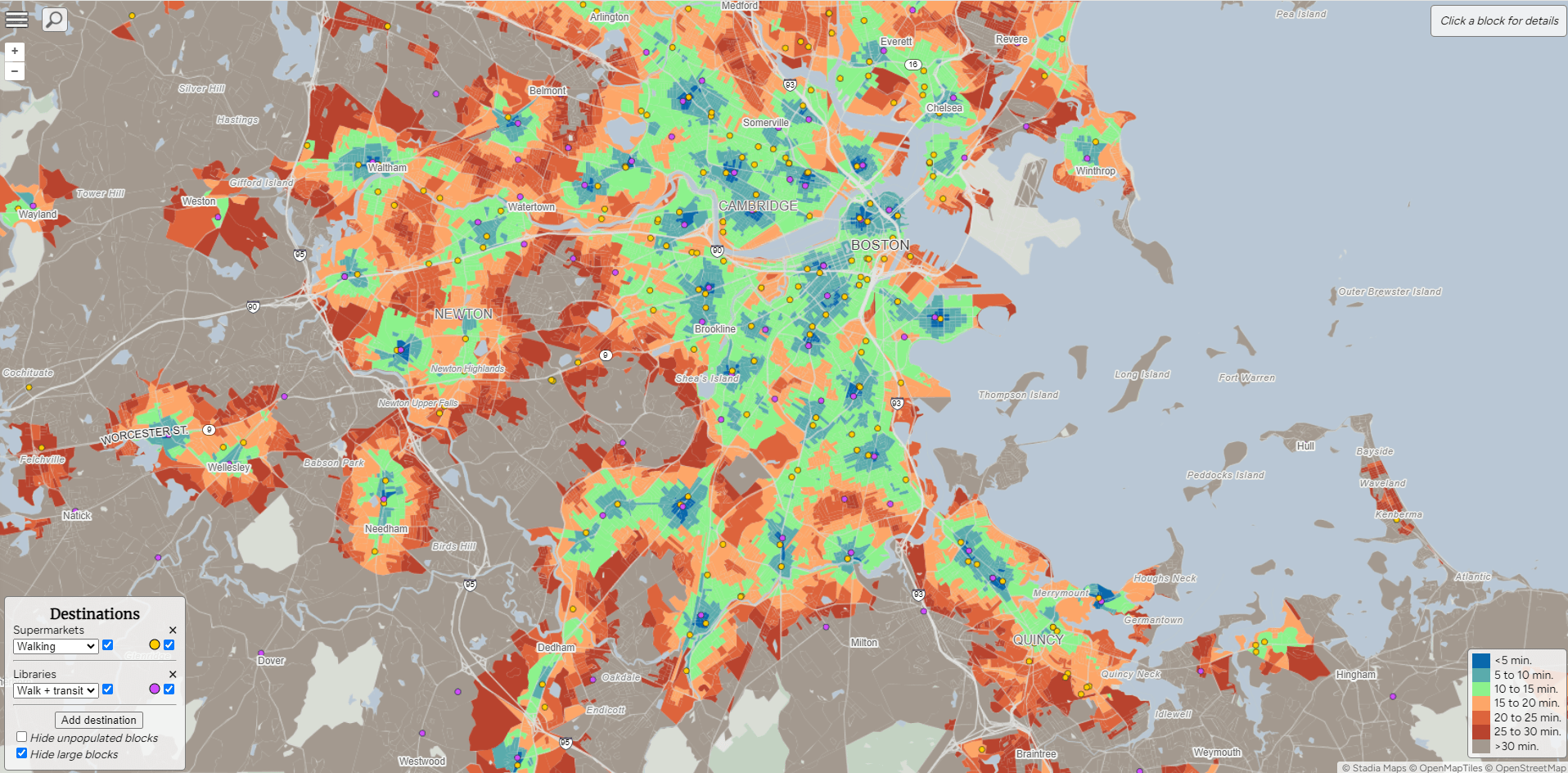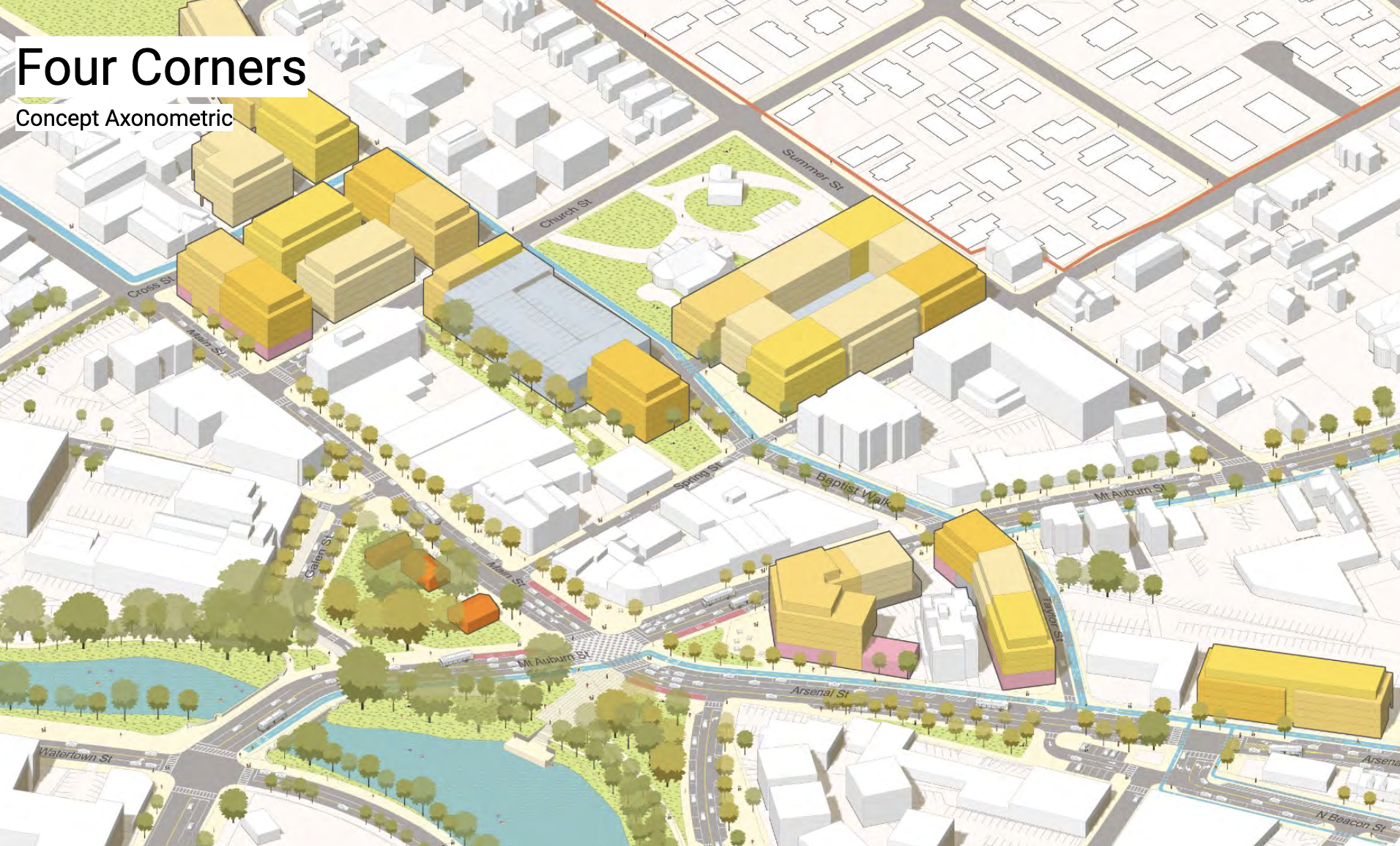Guest Column: Rush Hour Is Over – So What Comes Next?
7:00 AM EDT on May 26, 2020

An illustration of Paris Mayor Anne Hidalgo’s “15-Minute Neighborhood” concept. Courtesy of Paris en Commun.
The dramatic collapse of transit ridership during the pandemic is forcing the MBTA to be much more adaptable – adding more bus trips on routes where buses are full, and making efforts to shift more trips to empty commuter rail trains, for instance.
But the emergency has made clear that the transit system we have – designed to move large numbers of office commuters in and out of downtown Boston every rush hour – is not the system we need right now, or for the foreseeable future.
This is a scary prospect for those of us who want to see transit ridership rebound. But transit recovery - indeed urban recovery - will require new ways of thinking from everyone - employers, employees, transit riders generally and public transportation officials and advocates.
Start with the rise in telecommuting: as MassDOT Secretary Stephanie Pollack said from the "virtual podium" at a Greater Boston Chamber of Commerce: Future of Boston event earlier this month, telecommuting is being encouraged, and is likely to be part of the post-COVID landscape for the foreseeable future. The Secretary is right: companies at this moment should be giving their employees the flexibility to work remotely if that is possible. This is good for families and for our environment.
For our work, telecommuting offers two benefits: less traffic on our roads, and a forced rethink of what transit is for. While we're actively hoping for the T's ridership to come back, nearly three-quarters of commuters in the broader region were driving alone into work. A return to that status quo is terrible. While fewer people commuting might mean some empty trains and buses, it also means fewer emissions, fewer deaths, and less stress from road commutes.
This also forces the MBTA to rethink its larger purpose. Commuting only makes up 12% of our daily trips – so why do we orient our entire transit system to it? The dramatic drop in ridership (~99%) on Commuter Rail, which is almost exclusively oriented towards suburban commutes, shows the folly of such an exclusionary and outdated focus.
In communities like Lynn, there are thousands of potential riders who work in seemingly recession or pandemic-proof industries, but the combination of high fare prices and terrible off-peak schedules means Commuter Rail has traditionally been almost irrelevant for them, and unresponsive to their needs. With the rush hours that are more spread out and smaller than before, we have an opportunity to focus on adding more service during the weekends, late nights, and early mornings. The T recently started a short pilot that will allow riders to board with a CharlieCard for a Zone 1A fare. This is great news, but let’s make this permanent. We know this will make rides’ lives better and have a nominal cost for the T.
There's also an opportunity for transit advocates to lend a voice to the transformation of our streets to focus on allowing those who aren't ready to take transit (or have health concerns) a car-free way to commute. Fewer taking transit doesn't have to mean increased congestion and pollution. If we have more people commuting on bike, on foot, or other micro-mobility options, it's a win for sustainability.
We should also support land-use reform efforts that help us build "15 minute” neighborhoods. This concept has been popularized by Paris mayor, Anne Hidalgo. These 15 minute neighborhoods are ones that allow residents to have access to most daily needs within a 15 minute walk. Thankfully, many pre-1950s neighborhoods in Massachusetts were originally set up to support this kind of access. And they can again with some attention to the factors that made them successful in their early years.
To do this, we will need to make the neighborhoods safe (and enjoyable) for walking and cycling. This means that our economic development focus will need to be placed with greater emphasis on the types of small business amenities we need in every neighborhood: grocery stores, markets, gyms, fitness, dance and martial arts studios, barber shops, hardware stores, family medical practices, daycares, bowling alleys, entertainment venues and lots of bodegas.
The Governor’s Future of Transportation Report outlined that transportation agencies should be thinking about mobility for the future, not just moving people (or cars, as is presently the case) around. Mobility might mean a publically-owned delivery service for elders and those with disabilities. Perhaps mobility is working with other Executive Offices to make sure the Berkshires and communities on the Cape have good broadband service for remote opportunities. These ideas might not add to transit ridership, but they increase access to important destinations, further economic mobility, and decrease congestion.
Every person who chooses a bike to commute or works from home removes a car from the path of the essential workers we laud as heroes. Every person who walks to a neighborhood amenity rather than taking transit or driving to a more distant location will create free up capacity for others in addition to getting the exercise and fresh air they need. There's no road map (pun intended) for a time like this, but if we keep equity, sustainability, public health, and livability as our guiding principles, we can build a better world, even if it looks a little different than our vision from a few months ago.
We are at the very beginning of a long process to build a “new normal”. No one can say for sure what that will end up looking like once things settle down for good, but this is clear: we cannot let this pandemic destroy our cities, our neighborhoods, or our quality of life. We cannot continue to run transportation systems that congest our roads and pollute our air, making us more vulnerable to disease. Returning to, or even worse doubling down on, the failed practices that frustrated all of us before COVID-19 reared its head would be an irreparable mistake. The times call for new ways of thinking, for putting people and health first, and using neighborhood revitalization to achieve that goal.
Jarred Johnson is the Chief Operating Officer of TransitMatters, a nonprofit organization dedicated to improving transit in greater Boston.
Read More:
Stay in touch
Sign up for our free newsletter




